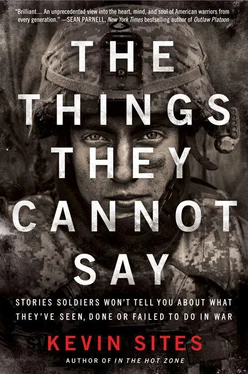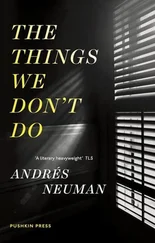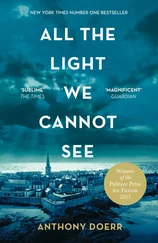Wold did as he was told and on his signal, his men loaded into the room, one sweeping to the right with his rifle muzzle, the other to the left and Wold up the middle, like the linebacker he was in high school. They found nothing initially, but there was another doorway.
The first Marine entered and his pupils nearly popped trying to take in what was before him inside: nine armed insurgents, all bearded and ranging in age from midtwenties to midthirties. Some wore shirts and trousers, the others traditional dishdashas, which the American troops derisively referred to as “man dresses.” They were armed with AKs and RPG launchers, but at that moment of recognition, no one fired. There was the momentary “holy shit” pause, followed by the pulse wave of fear that violence is imminent. Wold yelled, “Shoot him,” to the first Marine, who blasted the man in front of him. Pushing in, Wold fired into the group as well while his other Marine covered him on the left, putting rounds into the mass of men, who were close enough to hug. When the bodies had all dropped, Wold and his team had fired more than three dozen rounds total. The Marines took a breath, knowing they had dodged their own death by the smallest of margins. They pushed away the insurgents’ weapons and did their dead checks, nudging the bodies in the groin and other sensitive spots with their boots or rifle barrels. If anyone was still alive it would have been impossible not to flinch. The Marines picked up the fallen weapons and stacked them outside at the front entrance of the mosque.
Later, I watched as the squad reluctantly carried the bodies to the main hall of the mosque, where the wounded insurgents lay. On the bodies of the dead, I could see the precision of the Marines’ shots, controlled bursts to heads and center mass, just as they were trained to do. A piece of brain matter fell from the head of one of the insurgents and a Marine used a piece of wood to scoot it across the floor, back toward its owner. There were some small fist-bumps and bro-hugs amongst the Marines in the aftermath, but the lumps of lifeless bodies sucked up any sense of jubilation in this victory. It’s one thing to kill your enemies in battle; it’s quite another to have to hoist their bullet-ridden bodies, by wrists or ankles or waistbands, and drop them in a pile, dead eyes open, breathless mouths agape, the stench of their soiled clothes mixed with the sulfur smell of cordite still thick in the air. While others dragged the corpses toward unrolled black body bags, Wold shuffled around them, surveying the destruction, not sure what he was supposed to be feeling.
Wold shook his head ever so slightly while the brigade commander, Lieutenant Colonel William Buhl, snapped his profile with a silver point-and-shoot camera, the victor in the aftermath. As the Marines continued their unpleasant work, fitting the dead two to a body bag, the wounded insurgents tried to avert their gaze, fearful they might yet share the same fate as their comrades. They wouldn’t on that day. Instead they were bandaged by Navy corpsmen accompanying the Marines and given water. The wounded included an old man in his late fifties or early sixties with a red kaffiyeh wrapped around his head; a stocky man, maybe thirty-five, in a gray dishdasha; a young man with a mustache in his late twenties, wearing only a shirt and his underwear, his wounded leg exposed (Taleb Salem Nidal, discussed in the prologue); and finally, a man in his early thirties with multiple wounds to the neck, arms and torso, wearing the shreds of an Iraqi police uniform, dark slacks and a light blue shirt. Despite his wounds and dirty, tattered clothes, he had a strong and handsome face, a neatly trimmed mustache and a firm jaw. Of all of the wounded men, he seemed to me the most stoic, betraying neither his fear nor his suffering. [7] His name, I discovered from Naval Criminal Investigation Service reports, was Farhan Abd Mekelf, and according to the identification found on his body, he was an Iraqi policeman. He was the insurgent executed at point-blank range by a Marine lance corporal in front of my video camera the day after Wold’s fireteam first entered the mosque and confronted the room full of armed insurgents. I was asked a few days later after his shooting by an NCIS investigator to identify him inside his body bag at a storage building at a U.S. military base. I could tell it was him, even though his face was crumpled and collapsed into itself, reminding me of a rubber Halloween mask with a tuft of black hair on top.
When I saw Wold on the street outside the mosque afterward, these were his first words to me as I watched him through my video camera viewfinder:
“It was a fucking small room, dude. It was fucking small!” He shook his head. “Thirty-five fucking rounds. I was fucking scared, dude. I fucking grabbed my nuts.” Then he did, with one hand, and let out a big “Ohhh!”
“Tell me what you saw,” I said to him. He shook his head again in disbelief.
“I was told to go in the room,” he said, “and my first Marine went in… he saw a guy with an AK, I told him to shoot the guy, then I shot the six guys on the left… and my other Marine shot two other guys.”
A flood of questions filled my mind. I wanted to understand where the men were standing, the expressions on their faces, what it felt like to pull the trigger at such a short distance. How did their bodies, faces change? Did they simply crumple where they stood or did they fly back as if yanked by an invisible rope like what happens in the movies? All these questions, but none found words. “Tell me what you saw,” I blurted out again. Here was where curiosity and morbidity intersected, became indistinguishable.
“All I saw was guns pointed at me”—he shook his head again—“so it was just instinct to blare ’em. I gotta go,” he said, moving toward the sound of shouting and confusion.
I followed Wold down the street, where he learned that a friend of his had just been wounded. The single attacker vaulted over a wall. Wold took a fireteam inside the courtyard in pursuit, his adrenaline rush now fueling his anger.
“Get in that motherfucker and kill his ass,” he shouted as his team kicked in a metal gate. I followed them in, videotaping everything. They fired bursts into both buildings inside the courtyard. Nothing. Wold tossed a grenade through the space between the buildings, yelling, “Frag out,” as they piled outside for cover behind the courtyard wall. When there was no detonation, he sent another one of his guys in with another grenade. This one blew, its explosion muffled by the cinder blocks of the buildings. They rushed back into the courtyard, clearing the buildings as they had done earlier in the mosque, but this time there was no one pointing guns at them. In fact, there was no one at all. They came back frustrated and disappointed to the armored personnel carrier where the wounded Marine was being treated. Wold wanted blood for blood, but that would have to wait.
When I caught up with him again it was nearly dusk and his adrenaline had dipped only slightly. It was clear that Wold was still processing the life-and-death encounter he’d just had. His mind was spinning and he didn’t want to keep all his thoughts to himself. Over the next thirty minutes he dropped his guard and spoke with brutal honesty, perhaps instinctively realizing how important it was for me and others to understand that he was once just a normal young man, a boy really, who went to prom and played football in high school, but now here in Iraq he’d just added six to the number of lives he’d had to take. We talked, through the sound of machine guns, tanks and even an air strike. Our conversation was interrupted only by his movement and commands to his other Marines. It continued until dark and I rolled with my infrared light until the squad leader screamed at me to turn it off. This is the transcript of our videotaped conversation. (Watch this exchange and other footage of Corporal William Wold; the actual interview begins at 22.55: https://www.youtube.com/watch?v=Yfrr3kxzJtU&feature=plcp.)
Читать дальше












